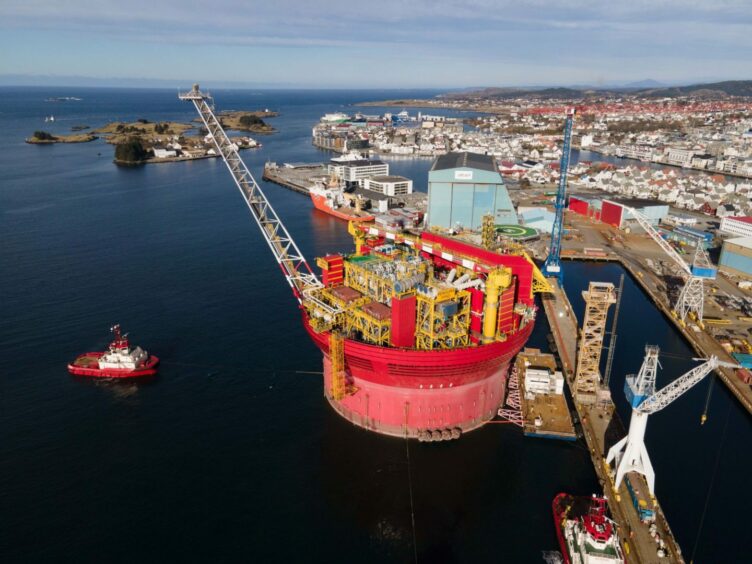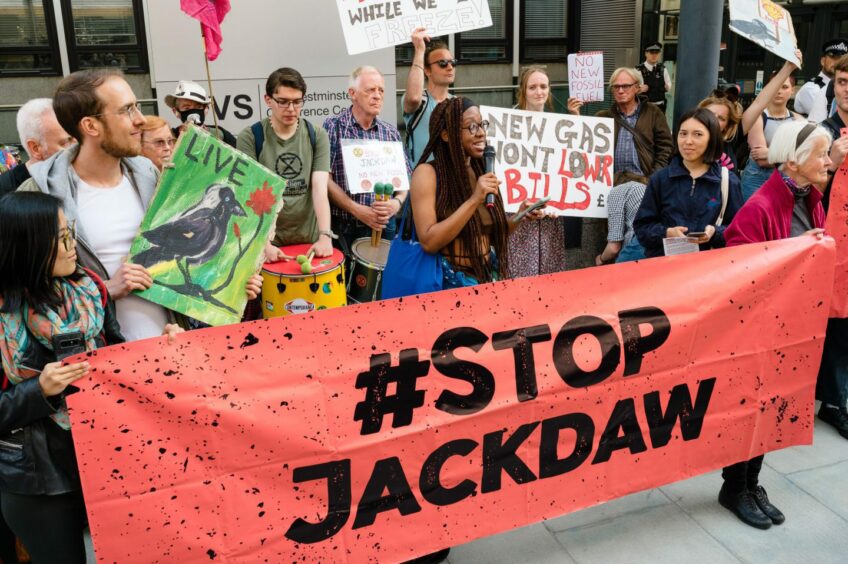Shell expects its Penguins floating productionstorage and offloading (FPSO) vessel to arrive in the UK North Sea in 2024.
Start-up on the proect is expected the same year, a spokesperson for the energy giant said.
Meanwhile, Shell’s controversial Jackdaw development is also moving closer to start-up. Jackdaw’s jacket was towed onto the field for installation during the third quarter of this year.
Penguins field start-up moving closer
Lying around 150 miles north-east of Shetland, Penguins is a redevelopment of a former tie-back field to the Brent Charlie hub.
The project will see a total of eight wells drilled and tied back to the newbuild FPSO, Shell’s first new manned vessel in UK waters in 30 years.
Following the release of Shell’s third quarter results, the spokesperson told Energy Voice – sister website to The Press and Journal – the Penguins FPSO had encountered “unavoidable delays” during its construction in China, due to the Covid-19 pandemic.
The vessel is currently in Aibel’s yard in Haugesund, Norway, after completing its maiden voyage from China earlier this year.
Shell originally expected first production from the northern North Sea Penguins project in 2022, but delays have forced the company to revise its timetable.
Greenpeace climate change activists targeted the Penguins FPSO during its voyage frmm China to Norway.
Jackdaw project awaiting challenge outcome
On Jackdaw, Shell’s spokesperson said the company was still awaiting the outcome of a legal challenge to the Offshore Petroleum Regulator – the environmental watchdog responsible for granting approval.
Located about 155 miles east of Aberdeen, Jackdaw is said by Shell to hold the potential to deliver more than 6% of the UK’s total gas production.
In July last year Greenpeace lodged a legal challenge against the project the day after Shell took a final investment decision.
The challenge is currently on hold pending the outcome of another case in the UK Supreme Court which involves similar legal issues.
In its annual report earlier this year, Shell said there was a “relatively low risk of disruption” to the North Sea gas project.


